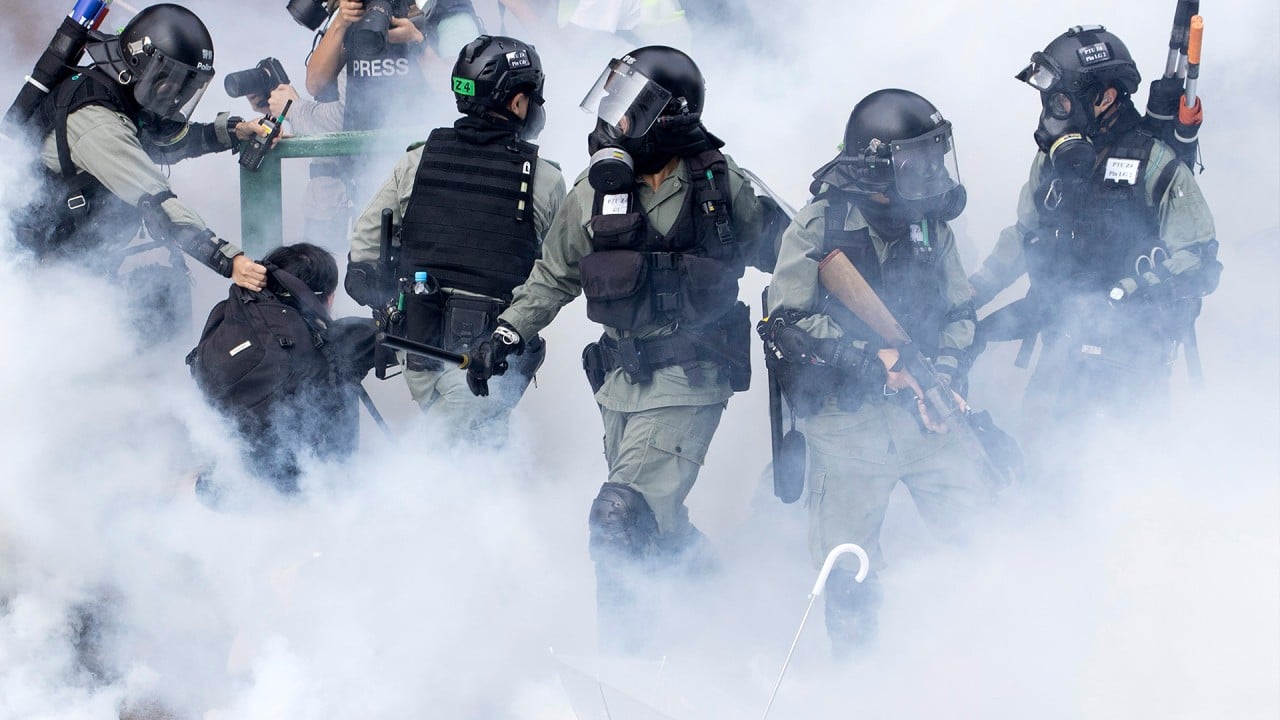
Hong Kong protest group to disband, as pressure mounts amid police investigation into its activities
- Civil Human Rights Front, which was founded in 2002, expected to announce its decision to fold on Friday
- Move comes on heels of shock decision by Professional Teachers’ Union to disband just days after government hinted at law enforcement action
A source from the front said its member groups were expected to meet on Friday to endorse a motion on disbanding the organisation, which was founded in 2002 and played a key role in the 2019 anti-government protests.
“As key leaders of the front are jailed and many key member groups have withdrawn in the past few months, the front has no other option apart from disbandment,” the source said.
Chung Chung-fai, the front’s acting convenor, did not respond to inquiries on Wednesday.

07:30
China’s Rebel City: The Hong Kong Protests
A representative of one member group said the front might announce its decision after a meeting.
“It is hard for the front to continue to survive under the current political pressure,” said the representative, who spoke on condition of anonymity. “Most of the member groups have decided to stay until the last minute and respect any decisions the front makes.”
Hong Kong’s Civil Human Rights Front will not hold July 1 march this year
Even with pandemic-related rules preventing large gatherings, the front attempted to keep up the tradition last year, filing an application for the event only to be rejected by police on public health grounds. Thousands took to the streets in defiance of the ban.
This year marked the first time the front did not try to hold the mass rally, citing the recent jailing of its leader and an ongoing police investigation into its legality.
In June 2019, the front had 48 member groups. That figure has dropped to 10 since a number of key groups pulled out in March, including the Democratic Party, the Civic Party, the PTU, and the Association for Democracy and People’s Livelihood.

The Labour Party, the Confederation of Trade Unions, the Social Workers’ General Union, the League of Social Democrats and the Hong Kong Alliance in Support of Patriotic Democratic Movements of China are among the remaining members of the front.
Police have yet to give an update on the progress of their investigation since they questioned the group in April over its finances, its role in a petition handed to the United Nations calling for an international investigation into alleged brutality by the force during the 2019 protests, and reasons for failing to register with the government under the Societies Ordinance.
At the time, the group refused to provide answers, arguing it was not obliged to and had never been asked about its status since it was formed.
The future of the front has been uncertain since its convenor, Figo Chan Ho-wun, was jailed for 18 months in May over an unauthorised 2019 protest.
Acting convenor Chung is a former leader of the group who returned in a transitional role after Chan was jailed.
Ivan Choy Chi-keung, a political scientist at the Chinese University of Hong Kong, said the environment for activist groups, such as the front and the alliance, was getting tougher following the PTU’s decision to disband.
“The PTU has 95,000 members and is known as a moderate group,” he said. “The organisational capability of the loosely organised front cannot compare with the PTU. It is only a matter of time before the front decides to disband.”
Battle for democracy: India, Hong Kong and Biden’s China bogeyman
Lau Siu-kai, vice-president of semi-official Beijing think tank the Chinese Association of Hong Kong and Macau Studies, said it was expected that more “anti-China” civil groups would disband as they realised Beijing was serious about eradicating all opposition.
“The suppression will continue, from the most prominent groups to other anti-China groups, especially when the central government believes that Hong Kong was being used by Western countries, such as the United States, to hit out at China,” he said.
On Tuesday, the PTU said it was left with no other option after being attacked by Beijing through state media as a “malignant tumour” that should be removed over its active role in the civil unrest two years ago.


